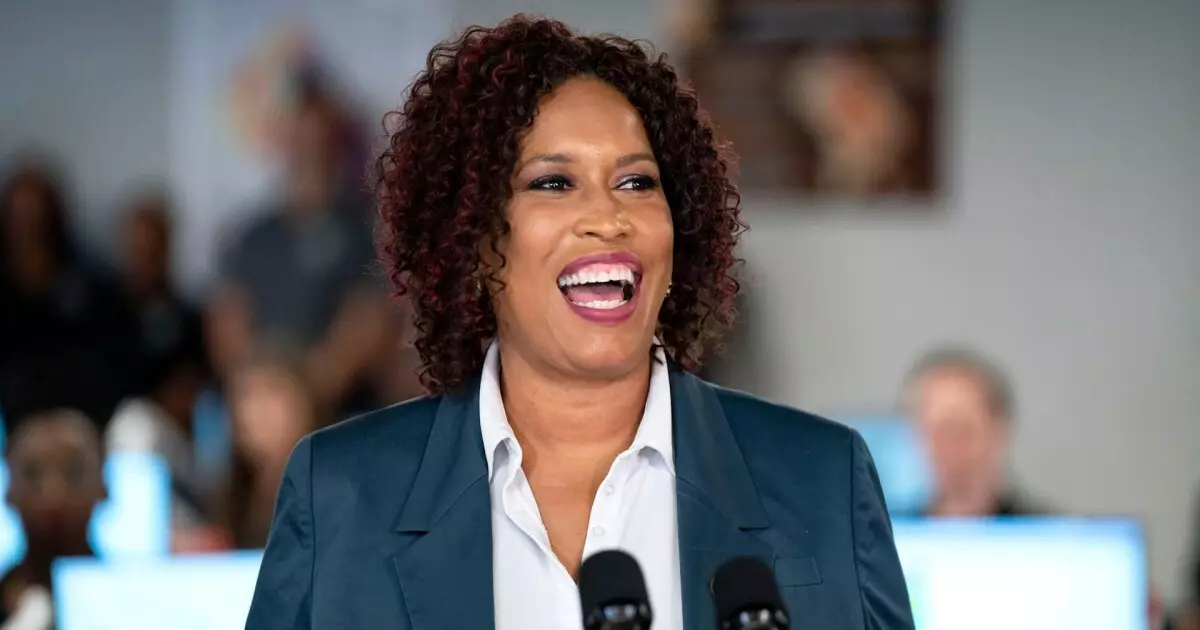The financial stability of Washington D.C. is teetering on the edge of uncertainty. The recent failure of the House to incorporate crucial language in the continuing resolution (CR) raises serious concerns over the District’s capacity to access funds already approved in its budget. Mayor Muriel Bowser’s articulation of urgency during a recent press event made it crystal clear: D.C.’s financial future hangs in the balance. With Mayor Bowser’s plea for House leadership to act swiftly, we see the manifest anxiety surrounding the city’s looming $1.1 billion budget deficit if the legally mandated 2024 budget remains the only access point for funding.
While the Senate has passed a bill to alleviate the situation, complications arise as President Trump’s administration expresses support, yet the ball remains in the House’s court. Here we find ourselves confronted with an entrenched political landscape that has the potential to derail not only the city’s immediate needs but also its long-term economic viability.
The Ripple Effects of Federal Workforce Reductions
The economic framework of Washington D.C. is inextricably linked to the ebb and flow of the federal workforce. As cuts trickle down from the federal level, local economies are adversely affected. Mayor Bowser’s alarming prediction of a potential job loss of up to 40,000 positions illustrates a significant disruption in Washington’s labor market—a crippling reduction that could reverberate through businesses and individual livelihoods alike. With fewer employees contributing to local economic activity, the city faces an uphill battle in ensuring that residents remain engaged and that businesses thrive amidst turbulence.
Maintaining a steady economic climate requires both strategic foresight and assertive investment. Any substantial decrease in employment inevitably leads to diminished consumer spending, which, in turn, exacerbates the already significant financial woes afflicting the city.
Congressional Control: A Double-Edged Sword
The inherently complex relationship between Washington D.C. and Congress has historically been a mixed bag that reveals a troubling paradox. While congressional oversight is designed to maintain fiscal accountability, it often undermines the local government’s autonomy. The mandated four-year balanced budget essentially strips the city of its flexibility to maneuver within an ever-evolving economic landscape. Mayor Bowser’s hesitation in submitting the 2026 budget demonstrates how political delays can alter local governance.
Compounding the problem is the fact that the city’s general obligation bond rating rests precariously on a knife’s edge—currently rated at AA+ or above by major rating agencies, yet under negative watch by Fitch Ratings and dangling a potential downgrade from Moody’s. These assessments underscore the stakes involved, as any financial downgrade would further erode the city’s financial standing and impede its ability to attract investment.
Urban Aesthetics Meet Practical Dilemmas
Alongside these financial maneuvers, the practical aspects of urban governance continue to play a significant role in shaping public perception. The Mayor’s recent efforts towards aesthetic improvements—a task force dedicated to enhancing public safety and cleanliness—strike at the heart of community pride. Yet, when national policies complicate local governance, even these initiatives can falter; the recent Cherry Blossom festival’s overflowing trash cans paint a displeasing picture for a city attempting to boost tourism.
However, beneath the surface lies a deeply ingrained reliance on federal resources. Frequent cuts to the National Park Service are tightening the grip on the city’s ability to maintain its public spaces, forcing local authorities to adapt without the robust support they traditionally received. It is a telling reflection of broader struggles faced by cities nationwide that must confront the dual challenges presented by diminishing federal resources and an increasingly precarious budgetary environment.
A Call for Decisive Action
As Washington D.C. navigates this confluence of financial distress and urban management issues, it emerges that the interdependence between federal action and local governance cannot be overlooked. The time for decisive action is now. It is essential for both Congress and the White House to recognize the repercussions wrought upon its capital by legislative indecision. A resolution that empowers D.C. to stabilize its finances can also set an example for a collaborative political environment where urban resilience can flourish under the weight of complex challenges.

